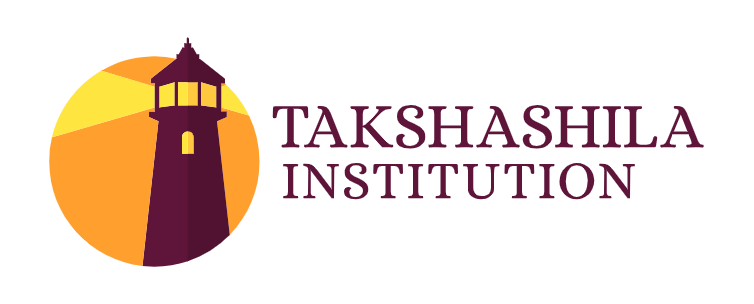Politics of the Internet
By Krithiga Narayanan
A distinctive global politics is developing around the Internet. Like global trade and environmental policy, internet governance has become a point of international conflict among states and a target of transnational policy advocates from businesses and civil society. Different countries have different perceptions on various content.
How do we make them come to a consensus? Facebook removed the disturbing image of a naked Vietnamese girl running after an attack during the Vietnam war because it violated Facebook’s child pornography policy. The image was later restored after it sparked a huge debate. Where do we draw the line in content regulation? How do we ensure safety, security, transparency and accountability on the Internet?
While regulation of the Internet goes against the very fabric around which the Internet is built, internet regulation is increasingly becoming an inevitability. But such regulation must also ensure that human rights and freedom of speech is protected on the Internet. Article 19 of the Universal Declaration of Human Rights says that “Everyone has the right to freedom of opinion and expression; this right includes freedom to hold opinions without interference and to seek, receive and impart information and ideas through any media and regardless of frontiers.” In 2012, during the 20th session of the United Nations Human Rights Council, a landmark resolution to protect free speech on the Internet was unanimously adopted. Even though countries like China and Cuba expressed reservations, they were among the 47 members of the Human Rights Council who approved the resolution. The resolution affirms that the same rights that people have offline must also be protected online, in particular freedom of expression, which is applicable regardless of frontiers and through any media of one’s choice.
Countries like China agreed with the UN Resolution on protecting freedom of speech on the Internet but cyber censorship is very much rampant in the country as it wants to portray the right global image. Chinese social media platforms are heavily censored by the Government and any content deemed unfit by it is swiftly removed. Twitter was blocked as it was blamed by the Chinese Government for helping citizens organize protests. China has it’s own version of Twitter called Sina Weibo but it is also heavily censored. People in China resort to innovative and creative methods to overcome such censorship.
According to the OpenNet Initiative more than 40 countries are filtering the Internet to varying degrees. Censorship is done mainly through filtering search results, surveillance, taking down servers, legal prosecution, illegal detentions and intimidation, shutdowns, DNS manipulation, IP-based blocking, and HTTP-layer interference . In India, the new Intermediary Rules 2021 has become a point of controversy in recent times due to censorship concerns. Twitter has flagged potential threats to freedom of expression in the country because of it and has said that it intends to “advocate for changes to elements of these regulations that inhibit free, open public conversation“.
WhatsApp has recently filed a lawsuit against the Indian government over a ‘traceability’ clause in the new Intermediary Rules 2021. It has said that traceability will break end-to-end encryption in WhatsApp which would consequently threaten user privacy and stifle free speech. The Indian Government has responded to the lawsuit saying that ‘no fundamental right including the right to privacy is absolute‘. Many leading social media platforms in India like Facebook and Twitter are yet to comply with the new rules.
The Internet has the power to bring about radical changes in any political system. It’s importance in shaping the politics of every country, opinions of all it’s citizens and world politics cannot be easily overlooked or underestimated. Hence, authoritarian governments fear it and seek to censor it. The internet has changed the way people communicate and consume information thereby enabling people to engage in political activism and citizen journalism. During the Arab Spring protests, social media and digital technologies played a major role in helping the citizens do collective political activism. Social networks have broken the psychological barrier of fear by helping many to connect and share information. Even though certain Arab States like Libya did not have much Internet penetration, the major role played by social media platforms in the Arab Spring cannot be denied.
While after the Arab Spring, Facebook was seen as a democratic medium promoting free speech, it’s users are also vulnerable to misinformation, manipulation and polarization which can also be a sign that the Internet is becoming over democratised.The Internet has thus become a platform where hate speech spreads very easily. People who have similar ideologies or interests form communication bubbles and in these echo chambers anyone with a different viewpoint is not tolerated. These echo chambers become the origin of misinformation and hate speech which leads to increased polarization of the internet.
Which of the analytical lenses on the internet does one choose – digital dystopia or utopia? Those who prefer the former approach it with an inherent understanding that technology is corruptive, whereas those who prefer the latter perceive that technology is one of the solutions. In the complex and intricate world of international politics, the internet is an intensely disruptive and transformative agent and this makes it even more difficult for policy makers to regulate it. Is the internet creating a dystopia, utopia or a grey area between the two? Policy makers still have a long way to go in order to effectively regulate and govern such a complex and contentious space as the internet while also safeguarding digital democracy.
The author is currently pursuing PGP in Public Policy from the Takshashila Institution. Views are personal and do not represent Takshashila’s policy recommendations.

